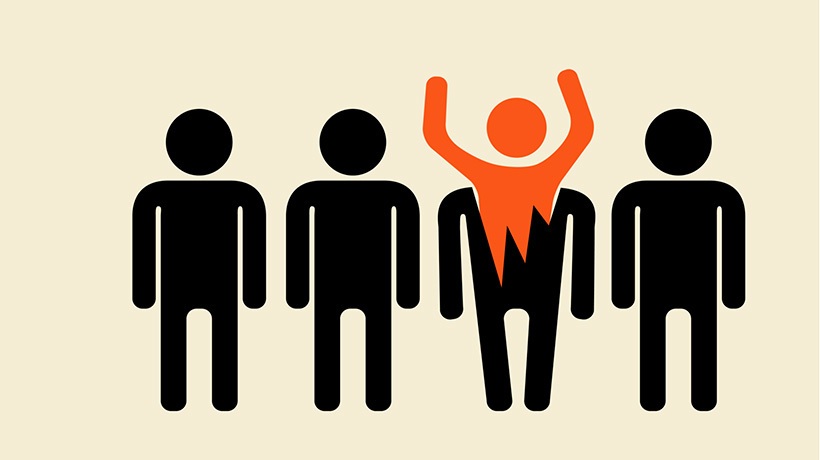If You've Been On Hold Level 1 Tech Support You Understand Why Looking Everything Up Doesn't Work
In the last year, I’ve heard (and read) numerous people say that we no longer need to learn or remember things. They imply that knowledge is no longer important because we can simply look things up. In this article, I’ll discuss whether this idea has merit. Spoiler alert: It doesn’t. Existing knowledge is needed to think, learn, and do.
Imagine this situation: You call customer support and the following conversation takes place.
You: My tribo doesn’t work. I hear a noise every time I click on the button, but the tribo doesn’t start.
Tech support: I understand you are having trouble getting your tribo to work.
You: That’s right.
Tech support: Can I put you on hold for a moment?
You: Yes.
(on hold)
Tech support: Thank you for your patience. You have Model 2z?
You: Yes.
Tech support: Thank you for that information. Can I put you on hold for a moment so I can retrieve information about Model 2z?
If you’re laughing, it’s because you’ve experienced this situation. So have I. The last time it happened, the service rep deleted important settings on my computer, which took a few days to reconstruct. And, it showcases a few major problems with having to look everything up. Getting things done is terribly inefficient. Without accurate knowledge, things go sideways. Accurate knowledge is needed to perform well. Imagine a dentist needing to look up how to pull a tooth. Comedian Tim Conway did a hilarious skit on this very idea and it offers a lot of insight about what it would be like to work without knowledge.
What we know is critical to everyday living. Daniel Willingham, professor of psychology at the University of Virginia, says the idea that we can look most things up rather than know and understand them is absurd. He takes aim at a statement by Jonathan Rochelle, a director for Google for Education. At an industry conference, Rochelle said children don’t need to learn math. Instead, he says, they can simply look things up on Google. Ridiculous (I agree with Willingham). Google can help us find information, but we must know what to look up and how to interpret and use it if we are able to find what we need. Existing knowledge helps us know what to look up. Existing knowledge helps us know if what we find is relevant. It helps us understand what the information means. And so on.
"The Internet has placed a wealth of information at our fingertips. But to be able to use that information—to absorb it, to add to our knowledge—we must already possess a storehouse of knowledge. That is the paradox disclosed by cognitive research." – E.D. Hirsh, Jr.
Here’s an example. Let’s say you want to analyze whether to put an attic fan in your attic. Your upstairs bedrooms are very hot in the summer and someone told you an attic fan would help. Some articles say they are cost savers and some say they absolutely are not. How do you reconcile different sources of information and understand terms and concepts such as powered and non-powered attic ventilation, radiant heat, heat transfer, conditioned air, and more?
You can look up information about attic fans. You won’t be able to make sense of it without building some knowledge along the way.
Knowledge Makes It Easier To Learn
When we are learning, what we already know (prior knowledge) helps us make sense of what we are learning. The less you know, the harder it is to understand. So foundational knowledge (terms, facts, concepts) is where we start. Prior knowledge helps us understand what we are learning. If we know about roof construction and attic insulation, for example, we better understand the recommendations for ventilating the roof. If we don’t know, we must learn in order to understand. We can short circuit some of the learning by “borrowing” what an expert already knows. But in many cases, you are also borrowing their biases. One of my podcast hosts tells listeners to do their own research. He’s telling people to learn so they can understand. Learning is processing-intensive, but working memory can only process a very limited amount of information at a time. Prior knowledge in long-term memory (which is thought to have limitless shortage capacity), reduces the working memory bottleneck and helps us more easily make sense of new information. People with more prior knowledge about what they are learning can make sense of what they are learning more easily (by using what they already know). This means less effort required by working memory and the ability to learn faster and more easily. Helping people develop adequate and accurate prior knowledge is one of the primary goals of instruction. This helps them learn what they cannot learn with formal instruction on their own more easily. That’s an important outcome when learning everything through formal instruction isn’t possible.
Knowledge Makes It Easier To Perform
In addition to helping us make sense of new information, prior knowledge helps us remember new information so we can use it later. New information is more easily remembered and used when it is related to what we already know. For example, an experienced optician easily fits new lens material specifications and uses into her practice because she quickly places that knowledge within what she already knows about lens materials. “Ah, this material would work well for high diopter progressive lenses!” She can reason because of her ability to compare the specs of the new lenses to what she is currently using. When you are new to a topic, it’s much more difficult to remember because the new information isn’t related to what you already know. Remembering the information on a new topic is difficult. But, remembering new information on a familiar topic is relatively easy because developing associations between your existing network and the new material makes it easier.
Prior knowledge in long-term memory gives new and related information a place to reside. Research on remembering new information shows that people with more prior knowledge can remember more new information than those with less or none. Prior knowledge makes learning more efficient. Here’s something else that the look-everything-up advocates get wrong: We don’t simply have random facts and knowledge in long-term memory. We have problems and solutions as well as complex ideas we’ve thought through. If you’re a knitter, for example, and have experienced dropped stitches and solutions successfully in the past, you know how to fix this problem when you deal with it the next time. You’re not starting from scratch. If you’ve driven to work various ways in the past, you know what alternate routes to take if there’s an accident. You’re not starting from scratch. In both cases, your knowledge helps you more quickly and easily solve problems. Without it, you struggle. The bottom line is this: Accurate and well-organized knowledge is what makes us able to think, reason, solve problems, and learn new information quickly. Without it, we are guessing and struggling. Of course, there will be things we do have to look up. But, the more we already know, the easier and more successful looking things up will be.
"If we… convey general knowledge to our students… we will give them the tools they need for lifelong learning. We will truly enable them to look things up." – E. D. Hirsch, Jr.
The idea that we can successfully look everything up is a silly myth with potentially horrible consequences. Give people the foundation of knowledge they need to succeed.
References:
- Beier, M. E. & Ackerman, P. L. (2005). Age, ability and the role of prior knowledge on the acquisition of new domain knowledge: Promising results in a real-world environment. Psychology and Aging, 20, 341–355.
- Chi, M. T. H, Feltovich, P. & Glaser, R. (1981). Categorization and representation of physics problems by experts and novices. Cognitive Science, 5, 121–152.
- Ericsson, K. A., Charness, N., Feltovich, P. J., & Hoffman, R. R. (eds.) (2006). The Cambridge Handbook of Expertise and Expert Performance. Cambridge, UK: Cambridge University Press.
- Hambrick, D. Z. & Oswald, F. L. (2005). Does domain knowledge moderate involvement of working memory capacity in higher-level cognition? A test of three models. Journal of Memory and Language, 52, 377–397.
- Hirsch, E.D. Jr., (Spring 2000). You can always look it up... or can you? American Educator, 24(1), 4-9. https://www.aft.org/sites/default/files/periodicals/LookItUpSpring2000.pdf
- Kaakinen, J. K. Hyönä, J. & Keenan, J. M. (2003). How prior knowledge, WMC, and relevance of information affect eye fixations in expository text. Journal of Experimental Psychology: Learning, Memory, and Cognition, 29, 447–457.
- Mayer, R. E., (2002). Rote versus meaningful learning. Theory into Practice, 41, 226-232. Retrieved from http://web.mit.edu/jrankin/www/teach_transfer/rote_v_meaning.pdf
- Nokes, T. J., Schunn, C. D., & Chi, M. T. H., (2010). Problem solving and human expertise. International Encyclopedia of Education, 5, 265-272.
- Willingham, D. T. (May 19, 2017). You Still Need Your Brain, New York Times. https://www.nytimes.com/2017/05/19/opinion/sunday/you-still-need-your-brain.html
- Willingham, D. T., (2006). How knowledge helps. American Educator, Spring, 30-37.Retrieved from http://www.aft.org/periodical/american-educator/spring-2006/how-knowledge-helps









